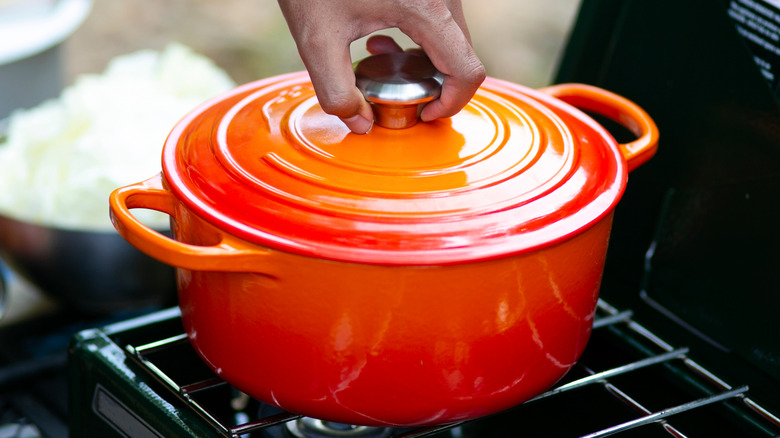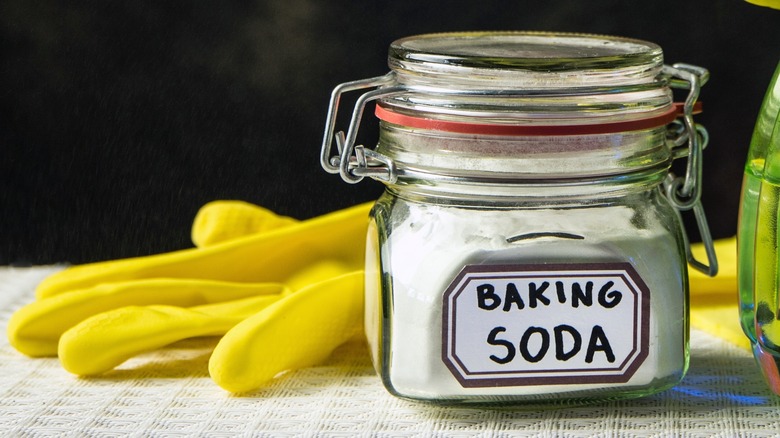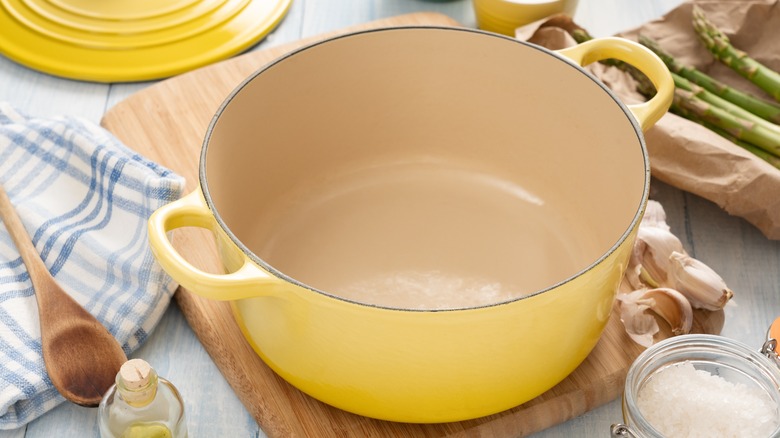Baking Soda Does Miracles For Sticky, Dirty Dutch Ovens
Dutch ovens may be one of the best investments for your kitchen. While these thick, enamel-coated pots can cost upwards of $400, they are exceptionally durable, with some brands offering a lifetime warranty, and excel in baking, boiling, roasting, and searing. But while your Dutch oven can withstand a variety of cooking methods, burnt gunk can still accumulate at the bottom. Luckily, baking soda may not just be the best way to naturally clean your kitchen — it also works wonders on grubby Dutch ovens.
To clean, add a hefty amount of baking soda to your Dutch oven, followed by a generous amount of water. Bring this mixture to a boil, and let it simmer for approximately 5-10 minutes. If your pot is particularly dirty, feel free to let it simmer for longer. Most stubborn stains should loosen by the time you start scrubbing, but remember to let your Dutch oven cool down first to avoid scalding.
The abrasive properties of baking soda allow it to sink its teeth into grime
The cleaning efficacy of baking soda is rooted in its chemical properties. Known scientifically as sodium bicarbonate, this alkaline salt is easily mined naturally or manufactured. As an alkaline, it is a basic agent in chemistry, adept at cutting through acidic compounds like dirt, oil, and grease. This property enables baking soda to effectively remove those pesky remains, leaving your Dutch oven as good as new.
Baking soda's cleaning prowess is also due to its granular texture when not fully dissolved. When scrubbed, the increased friction helps dislodge tough spots, and its grains are gentle enough not to scratch that precious enamel coating. Dish soaps, on the other hand, are often formulated with fats to make them less grating on the skin. This gives them that buttery smooth texture that might be less effective at removing food bits from the bottom of pots and pans.
Combine baking soda with dish soap to maximize success
While many home cooks consider plain boiling water one of the best methods for cleaning a burnt Dutch oven, adding baking soda to your arsenal of kitchen cleaning tools is a smart move. Baking soda, when combined with boiling water, speeds up the process of removing charred bits or stains from your pot. When used with dish soap, it also adds the grit and friction required to deal with hard residue that refuses to dissolve.
Mixing two cleaning agents might seem unwise, but baking soda safely combines with dish soap, setting it apart from potentially dangerous concoctions like dish soap and bleach, which can release harmful gases into the air. Just make sure to avoid adding vinegar to your baking soda mix. Contrary to popular belief, they actually neutralize each other, leaving you with a bunch of bubbles that do next to nothing for cleaning. Instead, opt to use the two separately.



